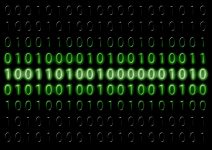Section 308H of the Crimes Act: Computer Hacking and High-Tech Offences

Computer crime is a broad area of law that covers a number of different high-tech criminal activities, including computer fraud, unauthorised access to information, and hacking.
Computer crime does not just cover offences carried out using a computer: tablets and smartphones, as well as other forms of technology, are also included.
As computer or cyber crime is a relatively recent innovation, the related charges are fairly new, and in some cases can be difficult to prove.
Under section 308H of the Crimes Act, computer-related offences come with harsh penalties, including imprisonment.
As technology is evolving, new legislation regarding computer-related crime is constantly being developed.
If you have been charged with a computer-related offence, it is a good idea to find a lawyer who is experienced and up-to-date with the complex legislation surrounding high-tech crime.
Here is a guide to some of the most common offences, and the penalties you are likely to receive if you are convicted.
Computer intrusion offences
Computer intrusion is most commonly known as ‘hacking’ and it can be defined as gaining access to restricted data without authorisation.
As well as accessing unauthorised data, it is also an offence to modify or impair computer data without authorisation.
The severity of the penalty for computer intrusion offences varies depending on the intent of the person, and the nature of the information.
In some cases, this offence is classed as a summary offence with a maximum prison sentence of two years.
However, it is a serious Commonwealth offence to access, modify or impair data that is held by a Commonwealth organisation.
If you are found guilty of a serious offence, you face the possibility of a longer term of imprisonment.
Computer fraud
Computer-related fraud is a summary offence, and it relates to the use of a computer or similar device to commit an act of fraud.
Fraud is defined as obtaining a financial advantage or property that belongs to another person through deception.
It also covers causing another person a financial disadvantage, or depriving them permanently of their property.
Computer-related fraud is defined as causing a computer or other machine to make a response that you are not authorised to cause it to make.
Computer fraud generally comes with a maximum of two years imprisonment, depending on the severity of the offence, and whether the offence was committed against a Commonwealth organisation, for example Centrelink or the Australian Tax Office.
Other computer related offences
There are a number of other activities that fall under the banner of computer-related offences, including the creation and distribution of viruses, Trojans and spyware.
A charge under the Crimes Act for computer-related offences can come with serious penalties.
At the very least, if you are found guilty you will have a criminal conviction and a criminal record, which can affect your options for employment and travel.
It is important that you take any criminal charges made against you seriously, and you get legal representation as soon as possible.
Having an accredited criminal lawyer with experience in computer crime can help ensure you get the best possible outcome in your case, whether that is a section 10 dismissal or conditional release order, where no conviction is recorded, a reduction in the charges, or the minimum penalties if you are convicted.
‘Like’ Sydney Criminal Lawyers®’ facebook page for regular blogs about legal topics.






